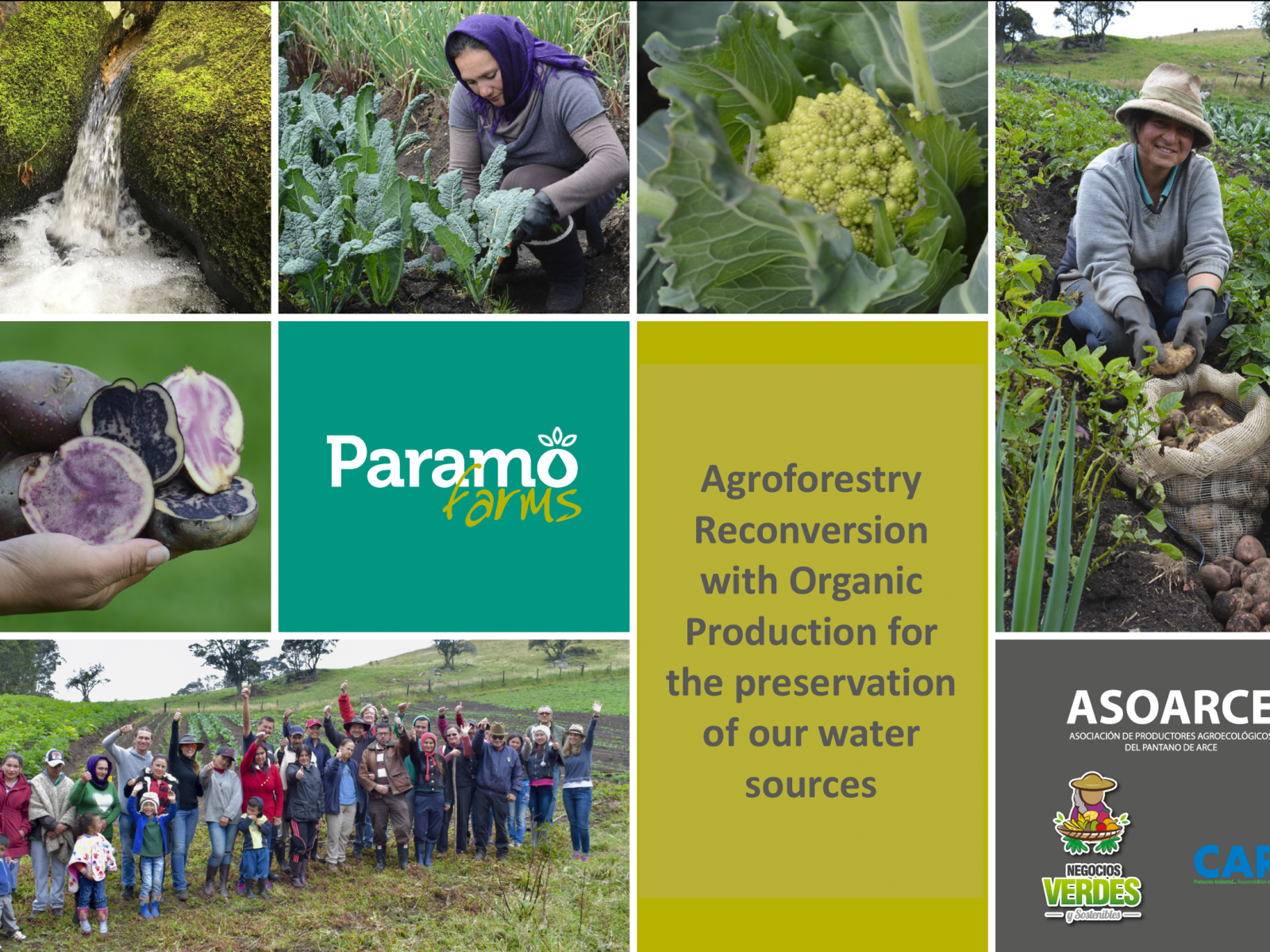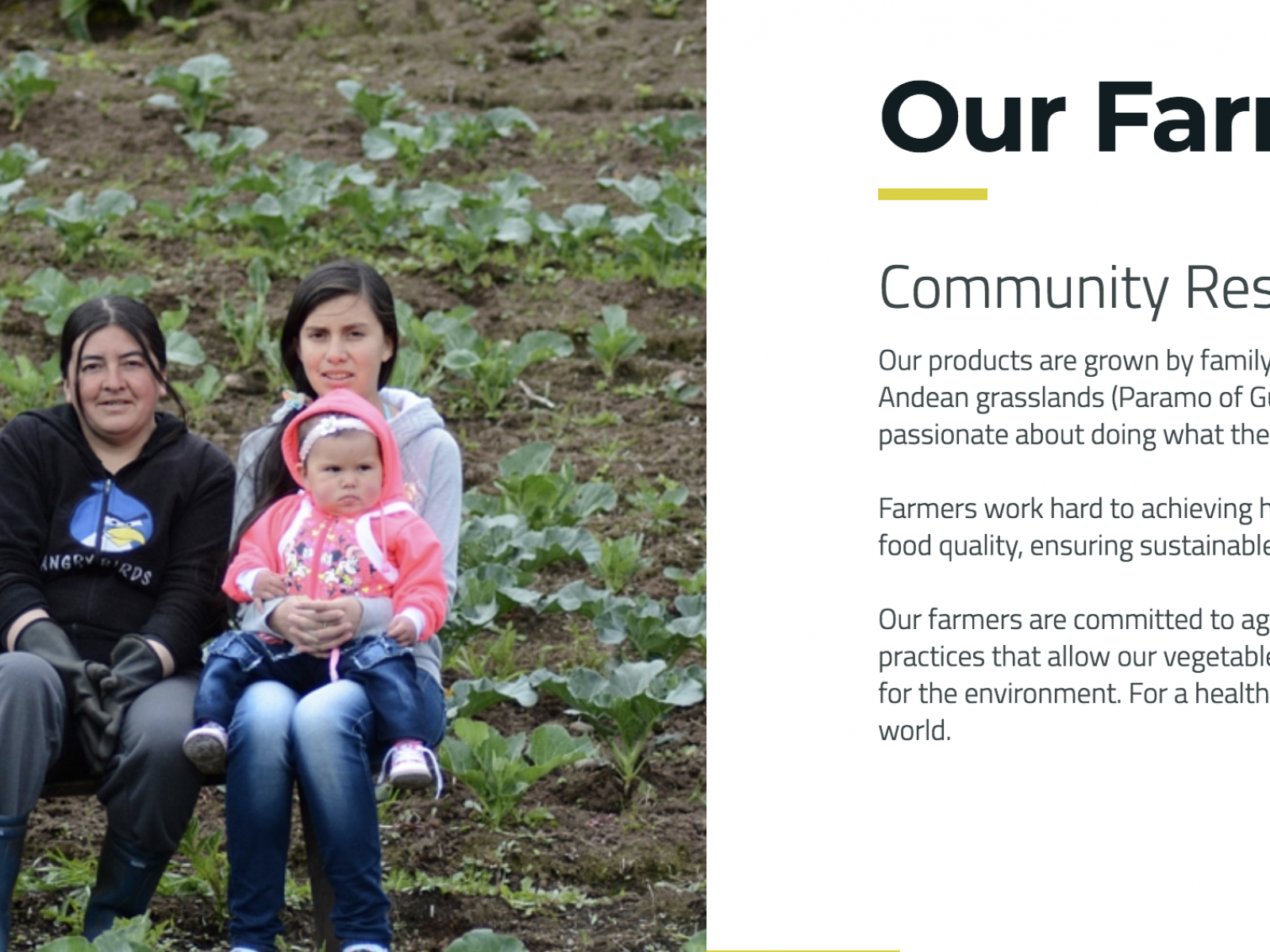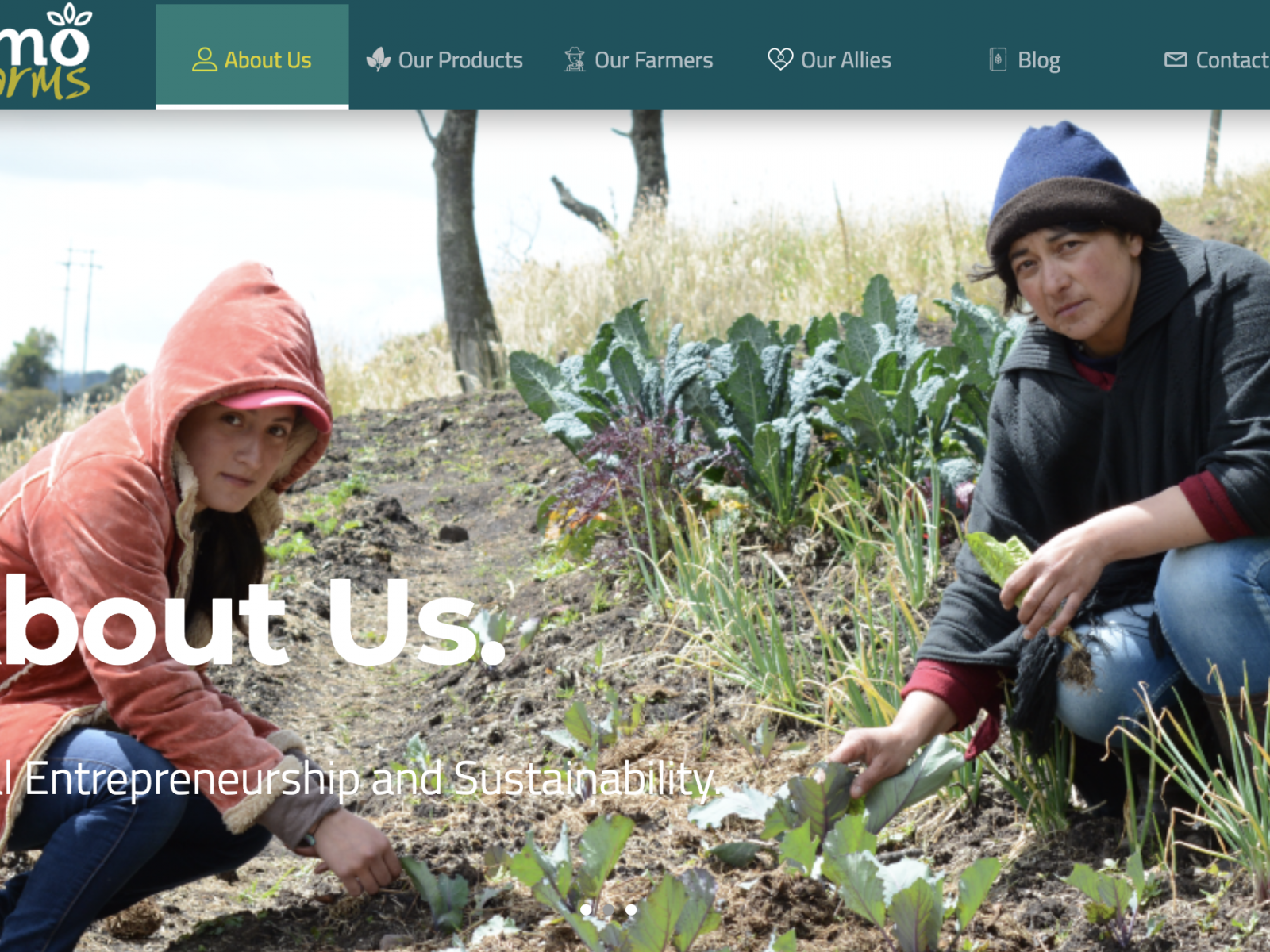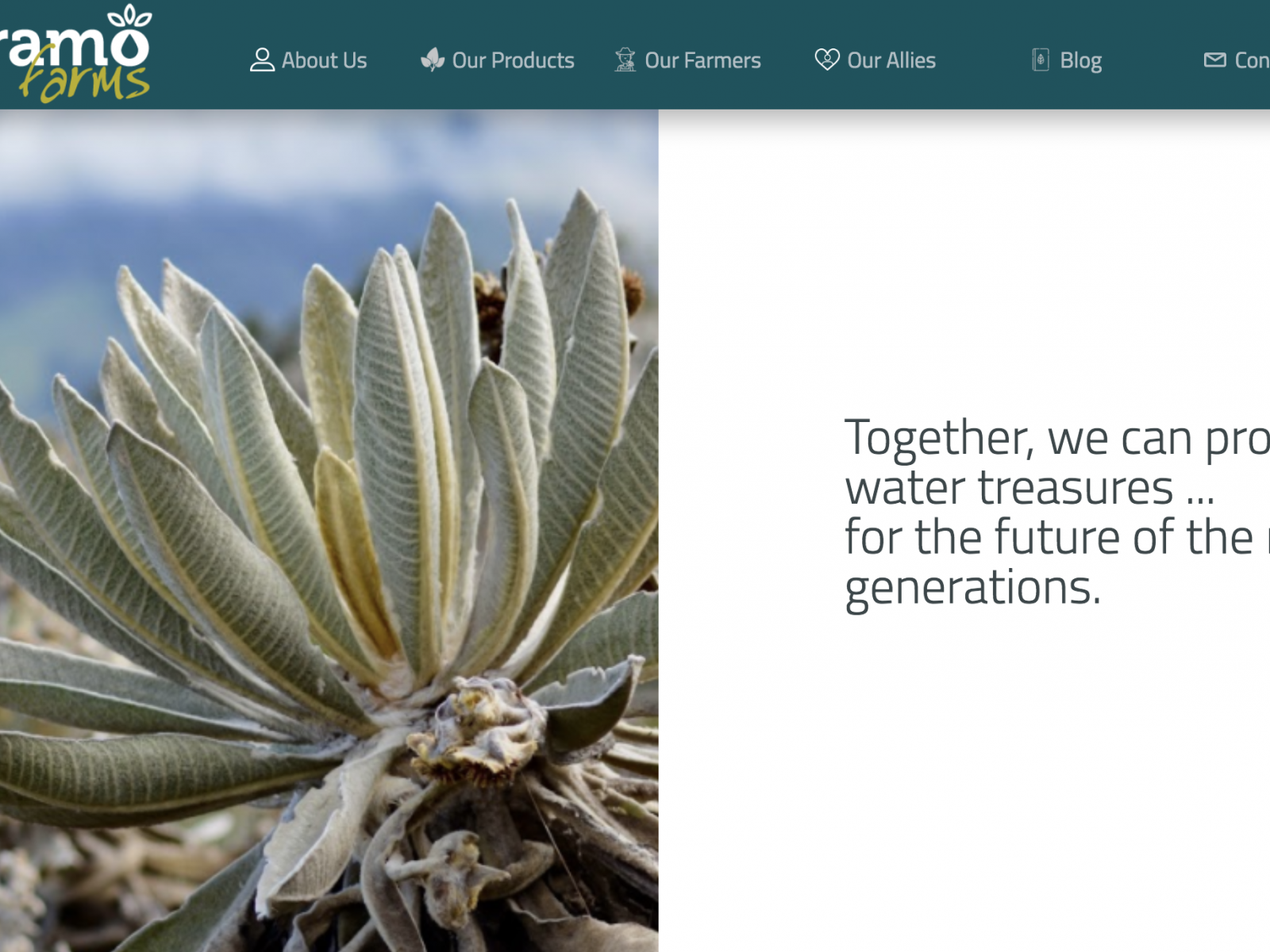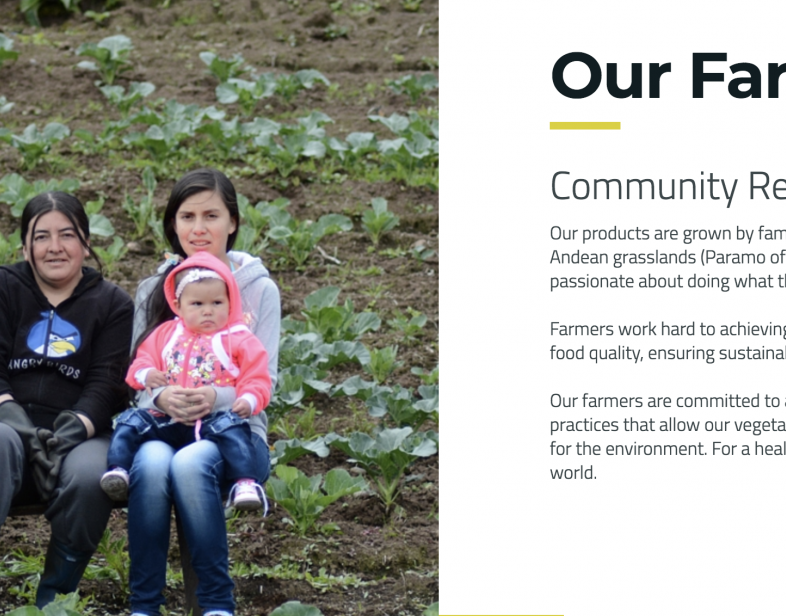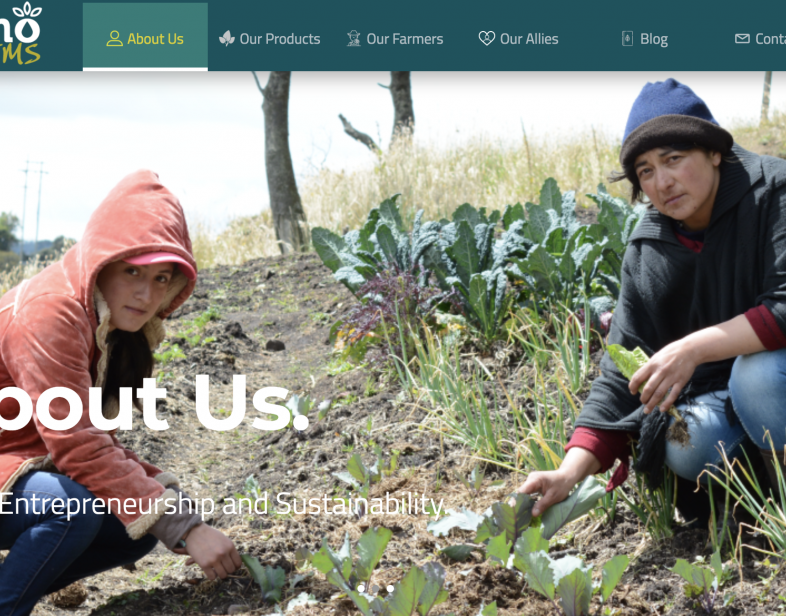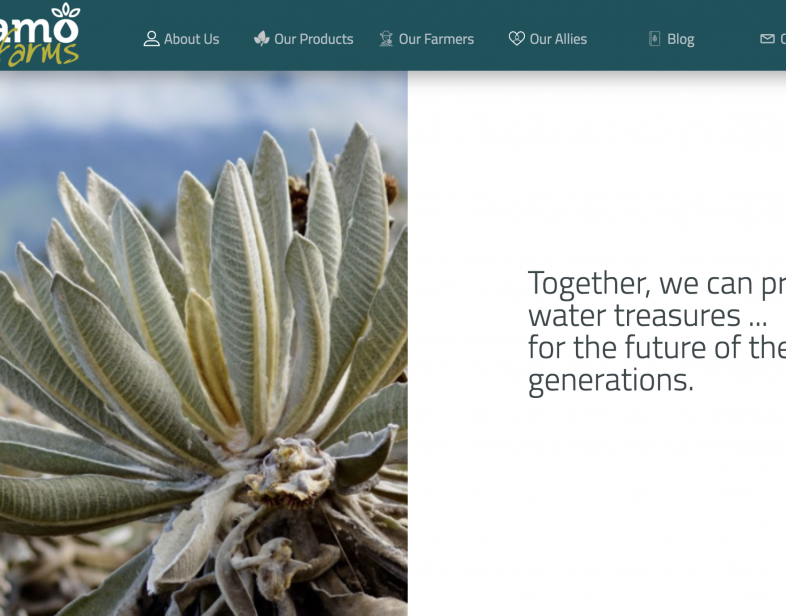An Overview Of Our Solution
Paramos, ecosystems of critical environmental value & rich biodiversity are endangered. They are considered water factories that provide fresh water to millions of people. Paramos also capture more carbon from the atmosphere than tropical rainforests, & Colombia holds 50% of all paramos on earth. Potato monocrops with intensive use of agrochemicals & irresponsible farming practices have caused significant damage to the Paramos’ soils & water. Local laws promote sustainable agricultural practices as a key strategy to protect these vital ecosystems. Nevertheless, the government has failed to offer effective solutions resulting in farmers’ economic loss. Though small-scale farmers may have contributed to this deterioration, they do sustain 60% of paramos. With our help, small-scale farmers can become managers of sustainable practices, turning them into the solution.
- Population Impacted: Current~1000 people, scaleable to ~600,000
- Continent: South America
Context Analysis
Despite growing awareness of the importance of freshwater ecosystems, human actions continue to degrade our paramos upon which we depend. Farmers in the Paramos have lost hope in agriculture as a viable economic alternative & continue cultivating potatoes in the traditional way. These families are in jeopardy of losing their lands because of law1769 that forbids agrochemicals use in the paramos, encouraging farmers to start the reconversion to sustainable practices. We started the project supporting & motivating a small-scale farmers’ community located in a village 3,000 meters above sea level. The community adhered to an organic production program, growing organic production sustainably including >20 varieties. These farmers used to grow potatoes monocrops & now are formally associated as an example of SOLIDARITY ECONOMY, demonstrating that they can support each other as a team for a common aspiration, overcoming individualism & selfishness as strategic keepers of a vital ecosystem.
Describe the technical solution you wanted the target audience to adopt
It is critical to support farming families with a comprehensive approach to impact their attitude & behaviors towards responsible/honest farming practices as managers of a vital ecosystem. We wanted farmers to switch to sustainable agro-forestry models focusing to restore deforested and degraded areas, ensuring ecological land and water use and actively reforesting with native trees. The solution implies the following pillars:
1) Technical training & educational development to improve production levels & quality in a sustainable way (organic agro-forestry models). Access to high-quality seeds, improve productivity while complying with local environmental regulations
2) Direct & fair trade, connecting farmers with final buyers, ensuring sustainability within the entire food chain
3) Gender inclusion & equality: Women are vital contributors to organic farming
Type of intervention
Describe your behavioral intervention
Paramo Farmers have been growing potatoes & milk cattle as the main source of living for generations in the traditional way, with agrochemicals. Nearly 2 years ago, motivated by extraordinary leaders of the community, farmers Elena, Chena, Barbara, Mireya, Felix and his neighbor Jose, a passionate and inspirational agronomist, decided to take a proactive role exploring different alternatives for sustainable agriculture suitable for the adverse weather conditions or the paramos. They were truly convinced that “agricultural reconversion” & the implementation of responsible practices with the environment was the best way to preserve the vital but fragile ecosystem like the one they live in. The community with our help and the commitment from other local stakeholders started a behavioral change towards a sustainable way of living, where they stay together as a family in the farms, preventing their children to leave to the big cities & keeping them working in the fields. We need to continue consolidating & expanding these behaviors within the community so farmers won’t abandon the program returning to conventional practices. If they do, farmers’ families may be forced by government agencies to stop their agricultural activity, leading to the disappearance of small-scale agriculture in the region. Most importantly, the families will be forced to leave their lands & potentially become displaced. Our intervention is key for the sake of the Paramo, the planet, the farmers & families.
As needed, please explain the type of intervention in more detail
Interventions were implemented through:
1) Organizing farmers as a formal “community association” managed by local leaders
2) Providing technical education, learning by doing, improve capabilities to the next level
3) Intensive emotional conversations about their right to become “strategic keepers” of a vital ecosystem, increasing awareness of their responsibility, understanding the impact to make the right choice
4) Facilitate access to quality seeds & organic supplies
5) Expanding participation & visibility with key stakeholders
A successful expansion of this project will demonstrate that cultivating in the Paramos responsibly & reforesting could be also economically sustainable to replicate it across >600,000 people in the Colombian Paramos
Describe your implementation
Activities
-Ownership & Accountability: Farmers took ownership of the Association (ASOARCE). Direct participation as members of the board & leading positions
-Technical development: Facilitate tech transfer to the community. Successful deployment of technical education programs with the participation of experts in organic farming, reforestation with native species and certification processes audits with the support of local Government/ agency
-Reach standards for organic farming. Ensure adherence to the organic production program expanding the reconverted hectares and growing organic production levels of multiple native varieties (tubers, grains and veggies) to support agro-biodiversity.
-Demonstrate with measurable actions the contribution to environmental conservation in each of the following areas: active reforestation (planted trees), water sources protection, seedlings and planting/maintenance of native species. Trees survival rate >80%.
-Participation with 100% of associates (residents in the village), in all initiatives engaged with environmental protection agency.
Enabling conditions
-Passion and commitment: These farmers have lived in Paramo of Guerrero for many generations. They love the land & are willing to “fight” for their right to stay protecting it as keepers & strategic managers of sustainable practices
-Diversity & Inclusion: Women have played a key role in organic farming & restoration. Our program is led by women.
Obstacles
-Identifying the different varieties that could grow in the paramos demanded great efforts, time & money. Identifying these species generated resilience, as they were not receiving the sales they were used too for several months despite greater efforts vs. conventional mono-crops.
-Establishing a continuous demand, finding formal and trustable buyers required a trial & error process until the trust was established between buyers and producers
External connections
Origen Sano is a fresh organic distributor to exclusive restaurant chains in Colombia. We work together to become an inclusive partnership for farmers to participate in the company´s revenue as well as profits. Farmers receive a fix rental payment according to the number of hectares cultivated as well as a variable percentage based on company's performance. This is a sustainable economic model so that farmers are responsible with the environment and can lead to a good commercialization model generating a stable family income.
CCI (International Colombian Corporation) a non-profit organization with >23 years of systematized and proven successful interventions in the Colombian agricultural and agro-industrial sectors, experts in organic certification. They support Paramo Farms for certification.
CAR (National Environmental Agency) supports this project providing access to educational tools and technical development, as well as, inviting us to participate in national fairs and events organized by the entity.
CS - Compétences Solidaires, a French NGO, has offered us tech transfer to develop capabilities for chips production and semi-processed products for participation in local & international markets, avoiding food waste.
ISTOM, College of International Agro-Development, Paris, France, sends interns to Colombia, and spend 6 months working at Paramo Farms, from crops, to development of a variety of chips, with native products from the Paramo
Who adopted the desired behaviors and to what degree?
The community began farming in the organic way almost two years ago, and they are still doing it. Furthermore, their products are shown through Paramo Farms at local fairs and sold through Origen Sano and other channels. Some evidence, the women that used to be housekeepers and did not participate in the farming, they became active leaders of the community, not only working the soil, but also learning how to do it organically and following the certification requirements. Also, their children, who were milking cows before 4am every day, and work in high risk conditions, they now changed their interests to be part of the project and productive in organic agriculture but some of them work on the germination of the products, and commercialize them to the rest of the community. Other evidence of the work done, we received recognitions from the CAR, we were awarded 42nd. place in the top 500 Green Projects of Latin America, #4 of Colombia and #2 for Human Development.
How did you impact natural resource use and greenhouse gas emissions?
Paramos are high mountain ecosystems present in some tropical regions of Central & South America, Asia, Africa, & Oceania, usually located >3,000 meters above sea level. Colombia is home to half of the paramos of the world. More than 300,000 people live in Colombia’s paramos. But the paramos are deteriorating rapidly, due to intensive agriculture, mining, livestock & extensive grazing. Today paramo’s soils have little organic matter, they have deteriorated to such an extent that many no longer store or release water gradually. But the paramos also absorb large amounts of CO2—even greater quantities than the tropical jungles & the plains. Through a process dependent on low temperatures, they convert CO2 into organic matter. The amount of CO2 that the paramos absorb is notable, one hectare of a protected paramo can capture up to 200 tons of CO2 in one year. The consolidation of this project might represent the beginning of a new sustainable economic era for the Paramos.
What were some of the resulting co-benefits?
Social: Awarded #2 in social development by Green Latin America, as mentioned, and through cooperative activities, mutual aid, and self-management, the associates have shown that they can work effectively when pursue a common good.
Biodiversity conservation: Some experts believe that the paramos might hold the highest diversity of species in a tropical high-elevation ecosystem in the world, with more than 5,000 plant species. This ecosystem is rich in all kind of ‘endemic’ species.
Water: Paramos occupy just 2% of the national territory, yet they produce 85 percent of its drinking water. They are key for water storage and regulation capacity, they supply water to 16 capital cities and 73 hydroelectric plants in Colombia, and other countries in the region.
Sustainable development: We will complement each phase with sustainable use of land and water through agroforestry systems, biological & bio-rational management for nutrition systems. Our program already turned into a "living school"
Sustainability
The model is economically sustainable, if reaching organic certification, the sales volume will increase significantly. It is proven after two years functioning locally that preserving & protecting the environment while selling small-scale farmers’ crops, is the most effective way to reduce poverty over the long term ensuring sustainability. To take the association to the next level, it must fund its efforts and its certification. The association is seeking to strengthen the commercialization and consolidate it. After those goals are achieved, the association and Paramo Farms will be able to work with a greater number of farmers across the paramo & restore & protect more hectares, increasing production & income to the farmers
Return on investment
N/A
How could we successfully replicate this solution elsewhere?
N/A
